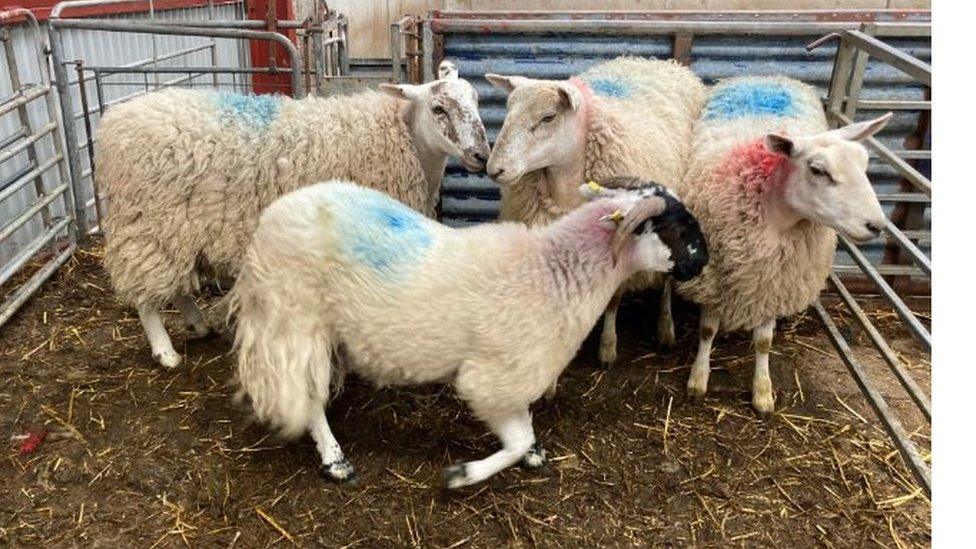Coronavirus: Northern Ireland wool market 'in turmoil'
- Published

At the Ulster Wool depot in Antrim, there's a steady stream of sheep farmers turning up to offload bags of fleeces.
At peak, which is about now, this large warehouse can take in 30 tonnes of wool a day.
It's here to be graded, packed and sold at online auction by this not-for-profit co-operative, part of British Wool.
The wool, taken off many of Northern Ireland's two million sheep, will end up in clothes, curtains, soft furnishings - even the carpets of first class rail carriages.
But this year Covid-19 has, as in so many other areas, added major complications.
China processes 30% of Northern Ireland's wool.
But that market closed in February, at one of the busiest time of the year for sales.
It has meant that up to 10,000 tonnes of UK wool is sitting unsold in stores.
Up to 30 tonnes of wool a day is sorted at the Ulster Wool depot in Antrim at peak times
And that is bound to have an impact on prices paid to farmers.
The Ulster Farmers Union says the market is in "turmoil" and that's adding pressure to sheep farmers whose incomes are modest.
'Animal welfare'
Shearing is principally done for animal welfare reasons.
It help prevent flystrike - a sometimes fatal condition which can leave animals very ill.
It's a job that has to be done annually at a cost of anything from £1.50 to £2 per sheep.
But under the complex pricing structure only the very best quality fleeces will come anywhere close to recouping that value.
For many farmers the value of the wool cheque will only pay around half the price of the shearing.
The industry has been lobbying the Department of Agriculture, Environment and Rural Affairs.
It may hope to get some consideration as part of a £25m Covid financial package, which is being worked up by Agriculture Minister Edwin Poots.